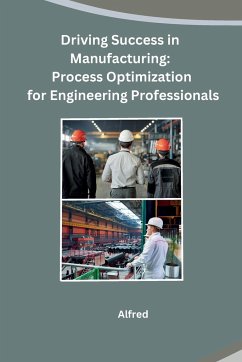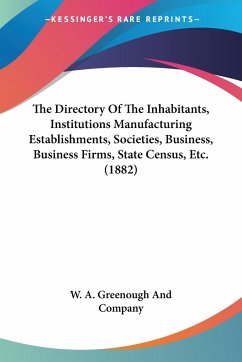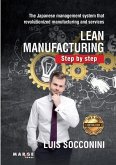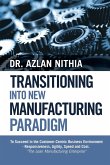Overview of Process OptimizationIn today's competitive manufacturing industry, the ability to optimize processes is crucial for engineering professionals. Process optimization plays a vital role in improving efficiency, reducing costs, and enhancing overall productivity. This subchapter provides an overview of process optimization, its key concepts, and its significance in the field of manufacturing engineering.Process optimization can be defined as the systematic approach of improving a manufacturing process to achieve desired outcomes. It involves analyzing existing processes, identifying bottlenecks and inefficiencies, and implementing strategies to enhance performance. By optimizing processes, engineers can streamline operations, eliminate waste, and achieve higher levels of quality and productivity.One of the fundamental concepts in process optimization is the concept of continuous improvement. Continuous improvement is a mindset that focuses on making incremental enhancements to processes over time. It involves constantly evaluating and refining processes to achieve greater efficiency and effectiveness. Engineers who embrace this concept are always seeking new methods and technologies to optimize their manufacturing processes.Another important concept in process optimization is data-driven decision making. Engineers rely on data to identify areas for improvement and to measure the impact of process changes. By collecting and analyzing data, they can gain insights into the root causes of inefficiencies and make informed decisions to optimize their processes. This data-driven approach ensures that changes are based on evidence rather than assumptions.Process optimization also involves the application of various tools and techniques. These tools can range from simple process mapping and value stream analysis to more complex methodologies such as Six Sigma and Lean Manufacturing. Each tool has its own purpose and can be used to address specific process optimization challenges. Engineers must have a comprehensive understanding of these tools and know how to apply them effectively in their manufacturing environment. The significance of process optimization in manufacturing engineering cannot be overstated. It enables companies to stay competitive by improving product quality, reducing costs, and increasing customer satisfaction. By optimizing processes, engineers can identify and eliminate inefficiencies, resulting in shorter lead times and faster delivery of products to the market. Moreover, process optimization fosters innovation and encourages the adoption of new technologies, enabling companies to stay ahead in the ever-evolving manufacturing landscape
Hinweis: Dieser Artikel kann nur an eine deutsche Lieferadresse ausgeliefert werden.
Hinweis: Dieser Artikel kann nur an eine deutsche Lieferadresse ausgeliefert werden.








